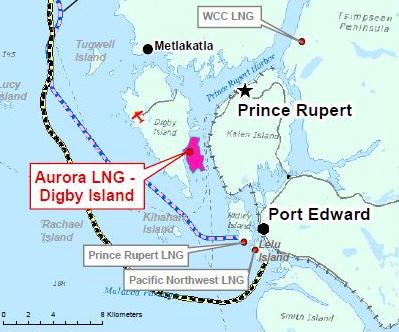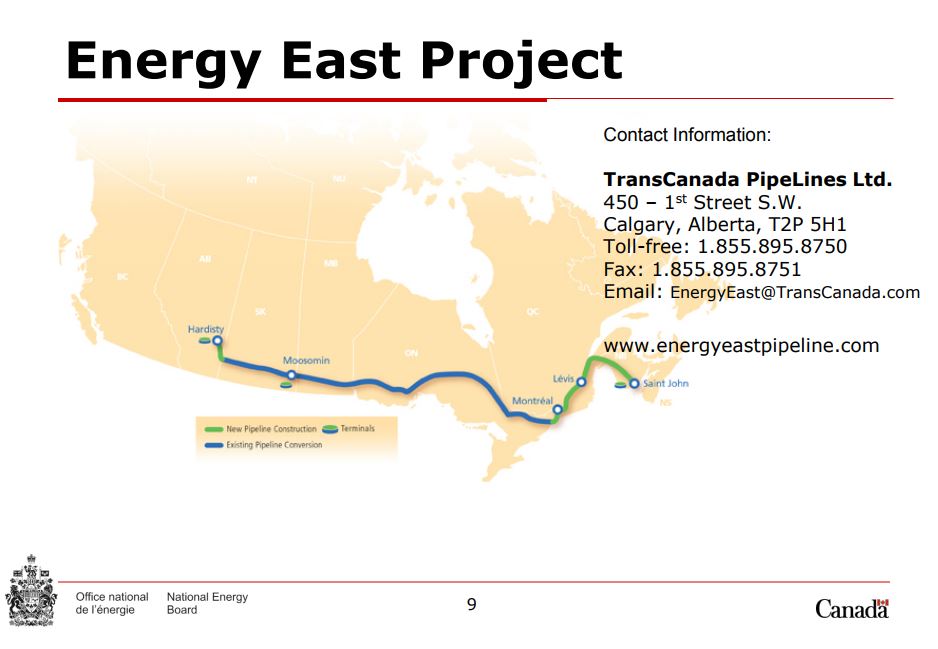Three major energy infrastructure projects have been cancelled in Canada in recent months. These were pipelines and related export facilities that would have taken Canada’s oil and natural gas into new markets and allowed Canadian producers additional revenue opportunities and a chance to grow their own production. The projects would have cemented Canada’s long-term energy viability, by transporting energy both for its internal use and for export.
Most recently, TransCanada Corporation announced it will no longer be proceeding with its proposed Energy East Pipeline and Eastern Mainline projects. Tim McMillan, president and CEO of the Canadian Association of Petroleum Producers (CAPP) discusses the decision by TransCanada to cancel Energy East and that decision’s impact on Canada.
“Canada only gets so many opportunities to build these nation-building projects and this one is now done,” McMillan said in a recent interview.
“Today, Eastern Canada is importing about 70 per cent of their oil … on ships from Saudi Arabia, from Nigeria, Venezuela. They don’t have access to using Canadian products entirely,” McMillan said.
“We’re losing also the opportunity of our own sovereignty. We export 100 per cent of our oil today to the United States, at a time when they are producing record amounts of crude oil and exporting their own oil around the world. We’re beholden to them to be our broker at a time that we’re renegotiating NAFTA and have just narrowly avoided, we think, a border adjustment tax,” McMillan said.
Cancelled energy projects in Canada in 2017
Pacific NorthWest LNG
Pacific NorthWest LNG had proposed and was in the permitting process for an $11 billion liquefied natural gas terminal on Canada’s west coast.
Pacific NorthWest LNG, which is an affiliate of the Malaysian oil and gas company PETRONAS, cancelled the entire project this summer. Part of the overall project scope was the need to take Canada’s natural gas to the export facility on the west coast. The PRGT project included a 900 kilometer long natural gas pipeline in northern British Columbia which TransCanada was selected to build by Progress Energy Canada, which itself is an affiliate company of PETRONAS.
After the Pacific NorthWest LNG project and export facility was cancelled by PETRONAS, TransCanada’s executive vice president Karl Johannson noted that there “is still a strong need for Canadian natural gas supplies to get to market,” and that TransCanada remains “ready to move forward.”
Aurora LNG
The partners developing the $28 billion Aurora LNG project in British Columbia pulled the plug on the project in September after four years of preliminary planning and feasibility work. Nexen Energy, a Calgary-based subsidiary of Chinese oil company CNOOC Ltd. and its partner INPEX Gas British Columbia Ltd. ended their feasibility study on the proposal this fall.
The company said in a statement that the macro-economic environment doesn’t support building a large LNG business at Digby Island, west of Prince Rupert.
Energy East
On Oct. 5, TransCanada announced it was pulling the plug on the Energy East pipeline and the smaller Eastern Mainline pipeline project. Energy East would have transported crude oil 2,850 miles from western Canada to eastern Canadian refineries and export markets.






